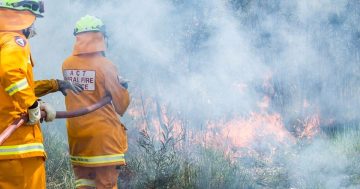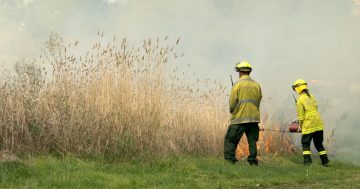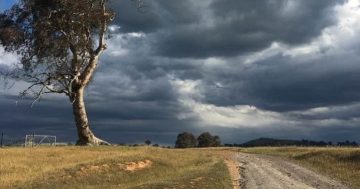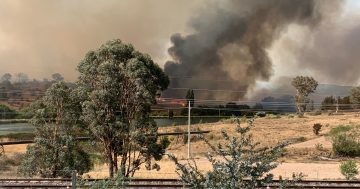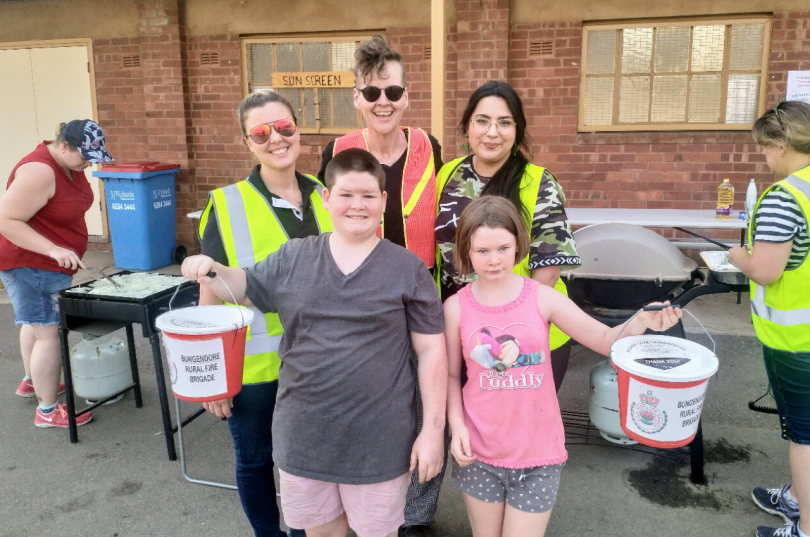
Doing their bit for the community during the summer’s bushfires were (back L-R) Hayley Boland, Holly Tame and Jazmeen Payne, with a couple of young collectors at the Queanbeyan Showground in January. Photo: Region Media.
“I think we’ve seen in the ACT community that we’re still suffering from what could be described as an existential dread to do with the summer that we’ve been through,” says Canberra physician and cardiologist Dr Arnagretta Hunter.
Dr Hunter made the comments in response to the Climate Council of Australia’s Summer of Crisis report, which assesses the human, environmental and economic costs of the summer’s extreme weather events.
Dr Hunter is also the ACT chair of Doctors for the Environment Australia, an organisation of medical professionals focused on promoting good health through care of the environment.
“The degree of emotional distress was one of the dominant features that were present in all the patients that I looked after, and the main things that I still see are the mental health effects”, she told Region Media.
Dr Hunter could well be talking about the current coronavirus outbreak, but she’s still seeing patients who have been deeply affected by the summer’s bushfire season.
“I saw the effects of the bushfires on the health of almost every patient that I looked after. People were unable to return to their homes or had lost access to medication,” Dr Hunter told Region Media.
“I’ve been watching the mental health issues really evolve, and now on top of that, we’ve got a tremendous challenge from a health perspective with the coronavirus, which is compounding anxiety as well as mental health and distress that was already there.
“It’s a really significant challenge for us.”
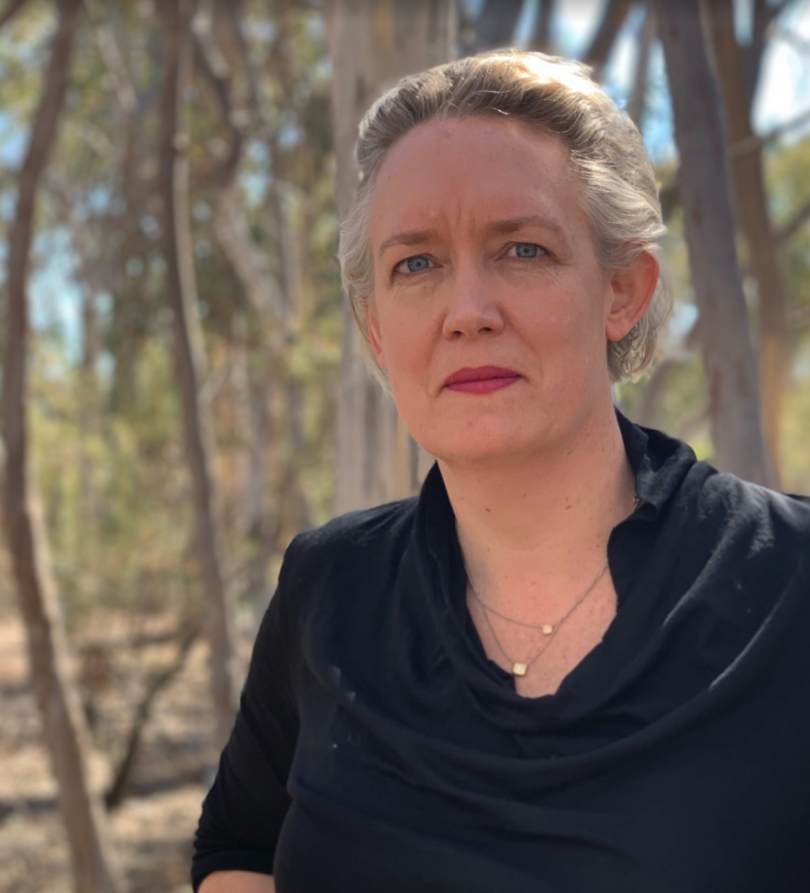
Canberra physician and cardiologist Dr Arnagretta Hunter. Photo: Supplied.
Dr Hunter said the extensive drought was not normal. Water shortages were not normal. The change in temperature was not normal and the bushfires were definitely not normal.
Responding to the question of whether the summer’s events were part of the natural variations of the climate, Dr Hunter answers by asking that look at the way we have responded to the coronavirus outbreak.
“When we’re trying to work out how to respond to this pandemic, we listen to the respective doctors and scientists.
“Scientists have been telling us the signals coming from climate change into the bushfires is really strong. There’s no doubt that the summer we’ve just experienced would not have had the intensity or the magnitude that we saw if we weren’t 1.1 degrees hotter than the pre-industrial era temperature,” Dr Hunter said.
“We have to acknowledge that this bushfire season was a consequence of climate change. It would have been a normal bushfire season otherwise.”
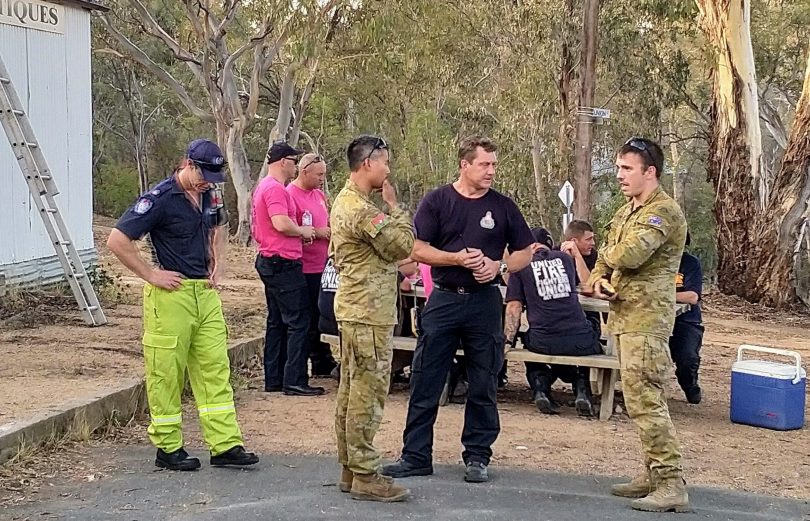
Firefighters and Army engineers at Tharwa discussing the Orroral Valley fire, 31 January. Photo: Michael Weaver, Region Media.
Climate Councillor and former Commissioner of Fire and Rescue NSW Greg Mullins has also been outspoken on the impacts of the bushfires on Australians.
“Climate change is supercharging bushfires. Fires are becoming more difficult and expensive to fight and fire seasons are starting earlier and lasting longer,” said Mr Mullins.
The report’s findings are as obvious as the toxic levels of smoke in Canberra that were the worst in the world on numerous occasions during December and January.
Here are some of the key findings:
- Nearly 80 per cent of Australians were affected either directly or indirectly by the bushfires.
- Between 650 million and 1.2 billion tonnes of carbon dioxide from bushfire smoke went into the atmosphere, equivalent to the annual emissions from commercial aircraft worldwide.
- About 21 per cent of Australian temperate broadleaf and mixed forests were burnt.
- Catastrophic fire danger ratings were experienced at locations and times of the year never before recorded.
- Thirty-three people died in the bushfires, 25 of them in NSW. Nationally, an estimated one billion animals were killed.
Dr Hunter said there are very clear parallels with society’s response to the summer’s bushfires and the coronavirus outbreak. As a community, she says we must work together.
“One of my best bits of advice, when I was talking to people about how to protect about heatwaves, was to work with your local community. Know who your neighbours are. Know who might need an extra hand and offer assistance when you can.
“With climate anxiety, one of the effective strategies from a mental health perspective is to do stuff. Your actions can be really helpful to take care of yourself by also taking care of your community.
“Maybe don’t shake their hand or give them a hug, but being able to check that people are okay by helping out with shopping will help with the emotional stresses, not just now, but into the future.”
The report, Summer of Crisis, can be found on the Climate Council website.












